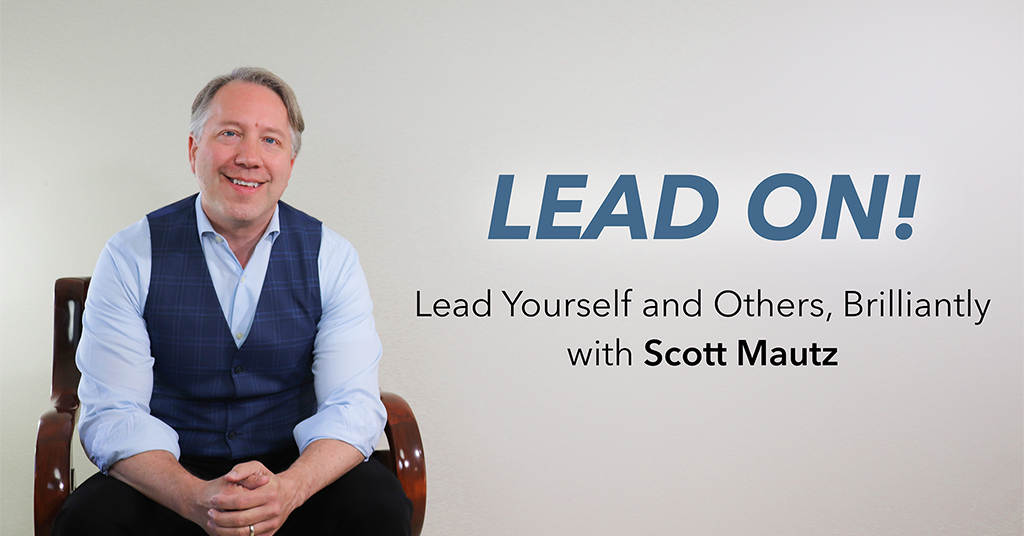
INSIGHTS (on leadership/self-leadership)
Avoid these three misconceptions if you want to be maximally productive:
“I work better under pressure.” Research simply doesn’t support this. In fact, it shows the opposite. Stress actually makes things much tougher on your brain, clogging it up and interfering with the ability to learn and translate ideas into meaningful information. In study after study, people under stress have repeatedly been shown to do more error prone work.
“My willpower will kick in.” I know you want to believe that you’ll get started on that task this weekend, or that you’ll be able to resist watching your favorite show tonight so you can finish your presentation. Unfortunately, studies show that our willpower isn’t as strong as we think it is and that it can be depleted surprisingly quickly. In fact, we often subconsciously avoid committing to long-term goals because we know deep down that when we first encounter a setback, our willpower will quickly run out and we’ll end up bailing. Think of that exercise routine you promised yourself you’d stick to. Things were going well until you missed two days in a row, then bam! Back to the usual. Even when we feel truly committed, we consistently believe that we have more restraint than we actually possess. Researchers from Northwestern’s Kellogg School of Management conducted experiments on a range of temptations including greed, drug use, and arousal, and found across the board that personal restraint levels were continually overestimated, leading to poor choices.
“My self-imposed deadlines will keep me on track.” Studies show the idea of setting deadlines for yourself isn’t as effective as you think it is. Researchers gave word jumbles to different groups of students, with a promise of a cash payment if they completed the jumble on time (and nothing if they didn’t). Groups were given either one final deadline, a series of interim deadlines, or allowed to impose their own deadline. The group that imposed their own deadline was heavy with self-reported procrastinators who said they were using the opportunity for a self-imposed deadline to practice addressing their procrastination. It didn’t matter though — this group ultimately ended up having the lowest completion rate of any group. In reality, despite the self-imposed deadlines, they started the word jumbles too late, found out it was harder than they thought, and that they didn’t have enough time to complete the work, and so bailed. By the way, the group that did the best on task completion rate was the one working with a series of interim deadlines. This is consistent with other research that indicates setting such deadlines externally, like with a boss or with friends, is the most effective way to encourage adherence to a deadline.
IMPERFECTIONS (a mistake I’ve made)
This mistake is very hard for me to admit, but here goes. Of late, I’ve caught myself greatly disappointed with my fellow human being, often losing patience with others, whether it’s a politician exhibiting infuriatingly selfish behavior, company leaders not doing what needs to be done to help their employees given what they’re going through now, or a fellow human refusing to do, or not do, what seems to be the obvious right action to take. It weighs down my level of trust towards people. And it’s poison. A lack of trust and faith in others, our co-workers, our neighbors, is at the root of so many problems. To get out of this funk, I’ve been reminding myself of what psychologists call The Distance Principle, which says, “The progress we’ve made together, as co-workers, as humans, over time, has moved us so much farther forward together than our mis-steps have moved us back.” That’s why it’s called a mis-step, not a mis-leap. Remembering this increases my tolerance level for the follies of my fellow human, it increases my empathy for transgressions along the way, and it puts it into perspective that, in general, we do FAR more that feeds a collective good than not. When I remember this, trust and tolerance for my fellow human goes up, I cut people more slack, and I pull myself out of an intolerant funk. Try it.
IMPLEMENTATION (one research-backed strategy, tip, or tool)
The next time you catch yourself beating yourself up, try taking a self-compassion break. The first step is to get better at catching yourself when your inner chatter turns negative. Next, in that moment, talk to yourself like you’d talk to a friend in need. If a friend came to you, looking for empathy, and shared a story that detailed something that ended badly for them, would you then say the following, “OK, I’ve heard what you’ve had to say, and I’ve come to the conclusion that you’re a complete loser!” No, of course not—you wouldn’t talk to your friend in need that way. So why would you talk to yourself that way? The final step is to remind yourself of the 90/10 Rule: value yourself based 90% on self-worth, self-appreciation, and self-love, 10% on assigned worth, what others think of you – that external slice of validation we all need from time to time. Don’t let that 10% assigned worth in your formula creep up to 80, 90, 100% of how you value yourself. In other words, chase authenticity, not approval. Focus on giving love versus winning love. This simple self-compassion break will help you break out of cycles of unhelpful self-abuse.




Leave a Reply